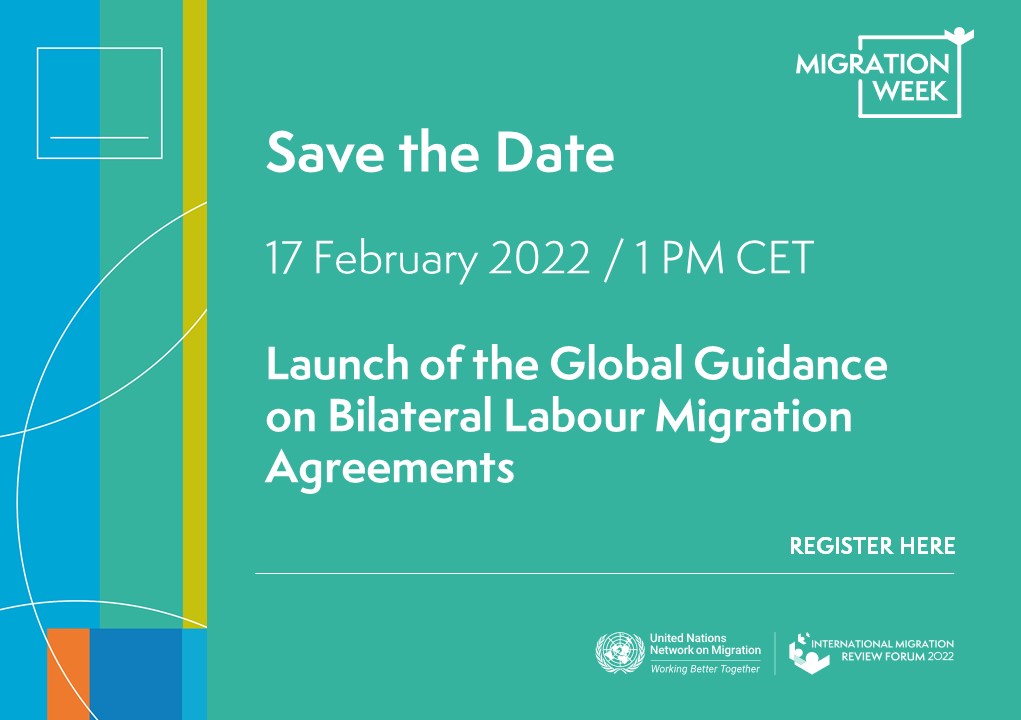Events
Launch of the Global Guidance on Bilateral Labour Migration Agreements
Background
Rights-based bilateral labour migration agreements are recognised as a tool for enabling migrant workers to move safely through regular migration pathways, supporting the achievement of the Global Compact for Safe, Orderly and Regular Migration. Under the auspices of the UN Network on Migration, ILO and IOM have led the development of the Guidance on Bilateral Labour Migration Agreements (BLMAs) with the support of a multistakeholder working group representing UN agencies, trade unions, employers, civil society and academia.
To support the socialization of this Guidance ILO and IOM, with the support of the UN Migration Network organize a launch event to present the Global Guidance to the broad audience and receive inputs and comments from the governments and other stakeholders. The event will inform participants on the content, scope, guiding principles and operational guidelines for the preparation and development, negotiation, implementation, monitoring and evaluation of the BLMAs. It will seek to encourage testing and application of the Global Guidance among member States and stakeholders.
Format
The workshop will be conducted in a virtual mode in Geneva with the participation of the representatives of the Permanent Missions and relevant government officials from the capitals of the GCM Champion Countries and other interested states, members of the TWG as well as other relevant stakeholders.
Interpretation will be available in Arabic, English, French and Spanish.
Register on this link to join the launch event and find more details.
The agenda of the event is accessible here.
